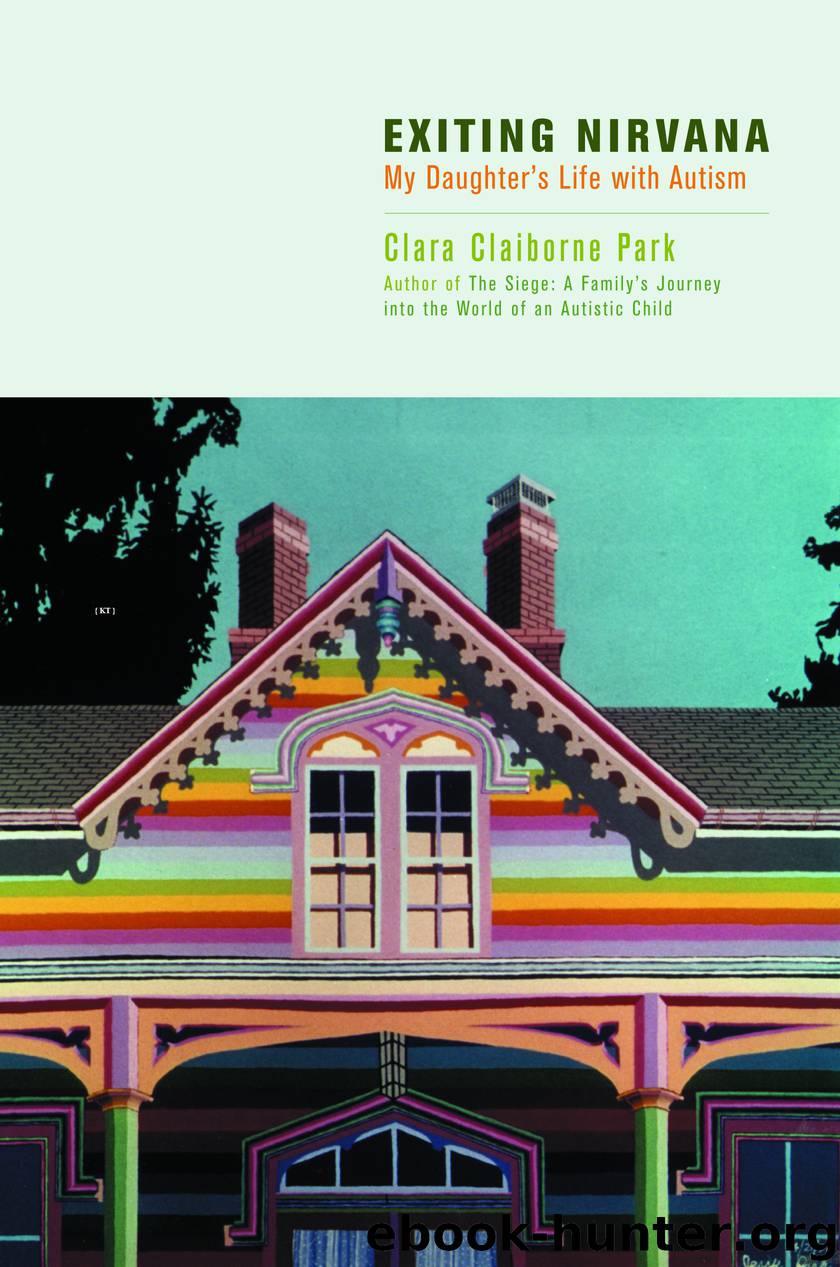Exiting Nirvana: A Daughter's Life With Autism by Clara Claiborne Park

Author:Clara Claiborne Park [Park, Clara Claiborne]
Language: eng
Format: epub
Tags: Fiction, General
ISBN: 9780316075299
Google: vAlVLNs0JIwC
Publisher: Little, Brown
Published: 2009-06-27T04:00:00+00:00
. . .
We read often that autistic children are deficient in imagination, in “pretend play.” “Current diagnostic schemes pay particular attention to the abnormal lack of imaginative activity.” “The lack of creative play [is] as unique and universal a feature… as [is] communication and socialization failure.” 2 Few who have watched a child repeat the same sterile lineup over and over will disagree. Grown older, autistic people who read tend not to read novels, with their confusing representations of a social world that is confusing already. Secure in the stability of fact, they navigate poorly among fictions.
Yet what about Jessy’s little imitation people? About her house plans with tiny steps so they can reach the china cupboard that is their “hotel”? “They rent different rooms in the hotel, just about a dollar a month. Sometimes they have slumber parties. A long time ago they used to live in the summer house but they moved during fall in 1972.” What about the “make-believe forest where the Piper Cleaner family went during the party”?
“Make-believe” — exactly so. Jessy has always been quite clear about what is make-believe and what is real. (She was nine when she drew herself, Big Girl Jessy, crayon in hand, holding what was clearly her own drawing of a Piper Cleaner person — see page 178.) Often anxious, she was never fearful; real fear requires imagination. Jessy was immune to the usual fears; we used to think of her as the child in the fairy tale who didn’t know how to shudder. There were no monsters under her bed. She was never afraid of the dark; it was the neighbor who was concerned when he found her sitting alone, lights out, one evening when her father and I were elsewhere. She wasn’t upset by blood; at twelve, when her periods began she was exultant that what was predicted had occurred: “Blood did come!” Though today she is a regular blood donor, her satisfaction has little to do with altruism. “Into the small tube! It was fast! How fast! Too good to see! That’s why I’m closing my eyes!”
There were dragons in her picture books, but Jessy did not imagine what dragons might do. She did not imagine what dangers might lurk in the dark. Blood did not make her think of wounds and death but of a regular appointment and a heart-shaped sticker. Menstruation was simply something that was supposed to come and did; she did not imagine the social anxieties of puberty. And yet she imagined the little people. Little imitation people, flavor tubes, elaborate, proliferating systems — so many glimpses of what a flawed but vigorous mind may create when, barred from ordinary experience, its energy flows into the limited channels of its comprehension.
Download
This site does not store any files on its server. We only index and link to content provided by other sites. Please contact the content providers to delete copyright contents if any and email us, we'll remove relevant links or contents immediately.
| Crime & Criminals | LGBT |
| Special Needs | Women |
We're Going to Need More Wine by Gabrielle Union(19046)
Pimp by Iceberg Slim(14508)
Bombshells: Glamour Girls of a Lifetime by Sullivan Steve(14076)
The Radium Girls by Kate Moore(12028)
Becoming by Michelle Obama(10027)
Educated by Tara Westover(8054)
The Girl Without a Voice by Casey Watson(7889)
Wiseguy by Nicholas Pileggi(5787)
Hitman by Howie Carr(5096)
The Wind in My Hair by Masih Alinejad(5095)
The Rules Do Not Apply by Ariel Levy(4969)
Hunger by Roxane Gay(4928)
On the Front Line with the Women Who Fight Back by Stacey Dooley(4873)
Year of Yes by Shonda Rhimes(4757)
The Borden Murders by Sarah Miller(4325)
Papillon (English) by Henri Charrière(4274)
Joan of Arc by Mary Gordon(4113)
American Kingpin by Nick Bilton(3887)
Patti Smith by Just Kids(3778)
